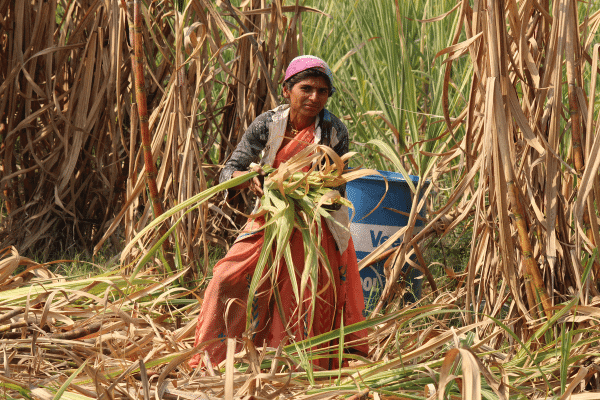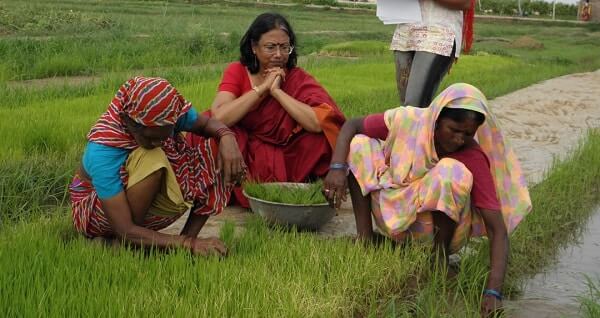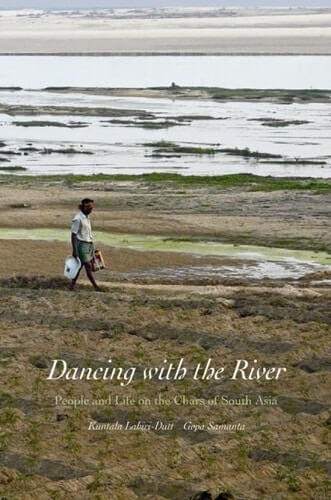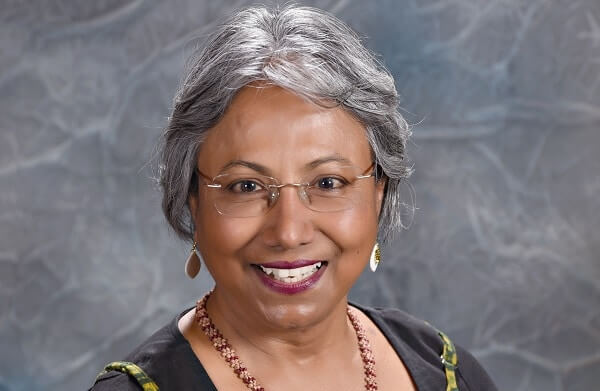Ask Professor Kuntala Lahiri-Dutt to describe her work, and she’ll say, “I work with extremely poor people, and the highly vulnerable environments in which they live.”
A Professor in the Resource, Environment and Development Program at ANU’s Crawford School of Public Policy, Dr. Lahiri-Dutt researches people’s lives and livelihoods in natural resource sectors such as mining, water and farming.
“Each of these sectors is seeing tremendous change, with flow-through effects not only on environmental sustainability as you might expect, but also on women’s empowerment and gender equality,” Prof. Lahiri-Dutt told Indian Link.
For her work in gender, and natural resource management, Prof. Kuntala Lahiri-Dutt has been appointed an Officer of the Order of Australia, AO, a rare honour for someone from our community. It is only one of 38 AOs announced this year.
“On the land, for example,” she explained, “the agrarian crisis is causing a ‘feminisation’ of agriculture. The men are moving out of rural areas in search of work that will better meet their family’s needs in a world that’s exponentially complex. The women are left behind to tend the land. Yet they’re not doing so willingly. Women do not like to farm; they do not own the land. The land they farm belongs to the husband, or father-in-law. They cannot use the land as collateral to secure a bank loan (to try and improve their lives). The produce that comes out of their labour, is also ultimately sold by their men! Land ownership is at the heart of the problem (in women’s empowerment). Only about 12% of the world’s land is owned by women.”

Similarly in mining, she alludes to the ‘people’ dimension of the industry in her work with informal/artisanal extractive practices. These are mining activities followed by unskilled individuals who find themselves sitting on resource-rich lands, but resource-poor themselves. They start digging, in the hope of finding coal, or gold. “It is seen as illegal, but they have no other opportunity,” Prof. Lahiri-Dutt lamented.
There’s a very large number of women in artisanal mining, her research has revealed. “Depending on the mineral, women’s proportion can be 50 to 60%. In gold and other more expensive minerals, women constitute a much lower proportion, 10-15%. But with stone and stone breaking – in major industries like black stone, quartz, marble, coal – you’ll find women in very large numbers.”
Her work with these informal miners has put the spotlight on the moral economy of the mining industry.
Yet she’s confident that women will be able to create change. “It’s already happening. Women are finding ways of accumulating small amounts of capital through self-help groups or cooperatives to apply for loans to buy technology for example. They are working under so much duress that each innovation will improve their lives.”
Luckily, there are sensitive men around us, Prof. Lahiri-Dutt feels. “There is a great realisation that we must work with men, as well as walk with them. Being a feminist means believing in everybody’s equal rights, not being antagonistic to men.”
Regarding water, Prof. Lahiri-Dutt’s extensive work on chars or river islands turned into a book, Dancing with the River. “I argue that rivers are not just physical entities but are ‘imagined’, and that tiny chars can blur the well-established conceptual boundaries between land and water to create spaces that are ungovernable,” she wrote.

She has also been examining how women in urban households are at the forefront of managing water resource. Look at families around you, to gain evidence of this!
“The realisation that women are the primary resource managers in families and small communities, urged me towards feminist methodologies in my research,” Prof. Lahiri-Dutt revealed.
The seeds for this had begun to germinate in her mind in the 1990s, when the Save the Narmada (River) Movement began in India against the massive Narmada Dam Project that was decades in the making.
“I saw the impact it all had, particularly on women, who have typically borne the brunt of transformation in societies. It became obvious to me that environment is critical to gender equality. What is a sustainable world? A sustainable world is also one where men and women are equal.” Prof. Kuntala Lahiri-Dutt
Perhaps bringing this notion to the forefront has been one of her most significant contributions. Of course, her work has had global impact – it sees her present her advocacy at several national and international agencies such as the Australian Council for International Agricultural Research (ACIAR), Commonwealth Scientific and Industrial Research Organisation (CSIRO), and Department of Foreign Affairs & Trade (DFAT), and United Nations Environment Program, the United Nations Development Program, World Bank, UN-WOMEN, International Resource Panel, and Gender & Water Alliance.

Prof. Lahiri-Dutt is now passionate also about sharing more widely the deep insights she has gained about gender and environment. To this end, she has designed two university courses – Gender, Resources and the Environment, and Gender and Development.
“I feel very privileged that my work is recognised in this manner, and with this AO honour,” Prof. Kuntala Lahiri-Dutt remarked. “There are many, many women who are equally if not more talented than me, so many of them women of colour. That I have been singled out for this honour is my good fortune. I would like to add that if on the basis of this award, I can do something good for other people, then I will try it; that will be my goal.”
She’s also deeply indebted to her university ANU and the opportunities it’s provided. “ANU has given me the wings that allowed me to fly, and so I want to say thank you. What I am today, much of it is a contribution of my institution.”
READ ALSO: Harinder Sidhu AM: Australia Day honourrs 2024





